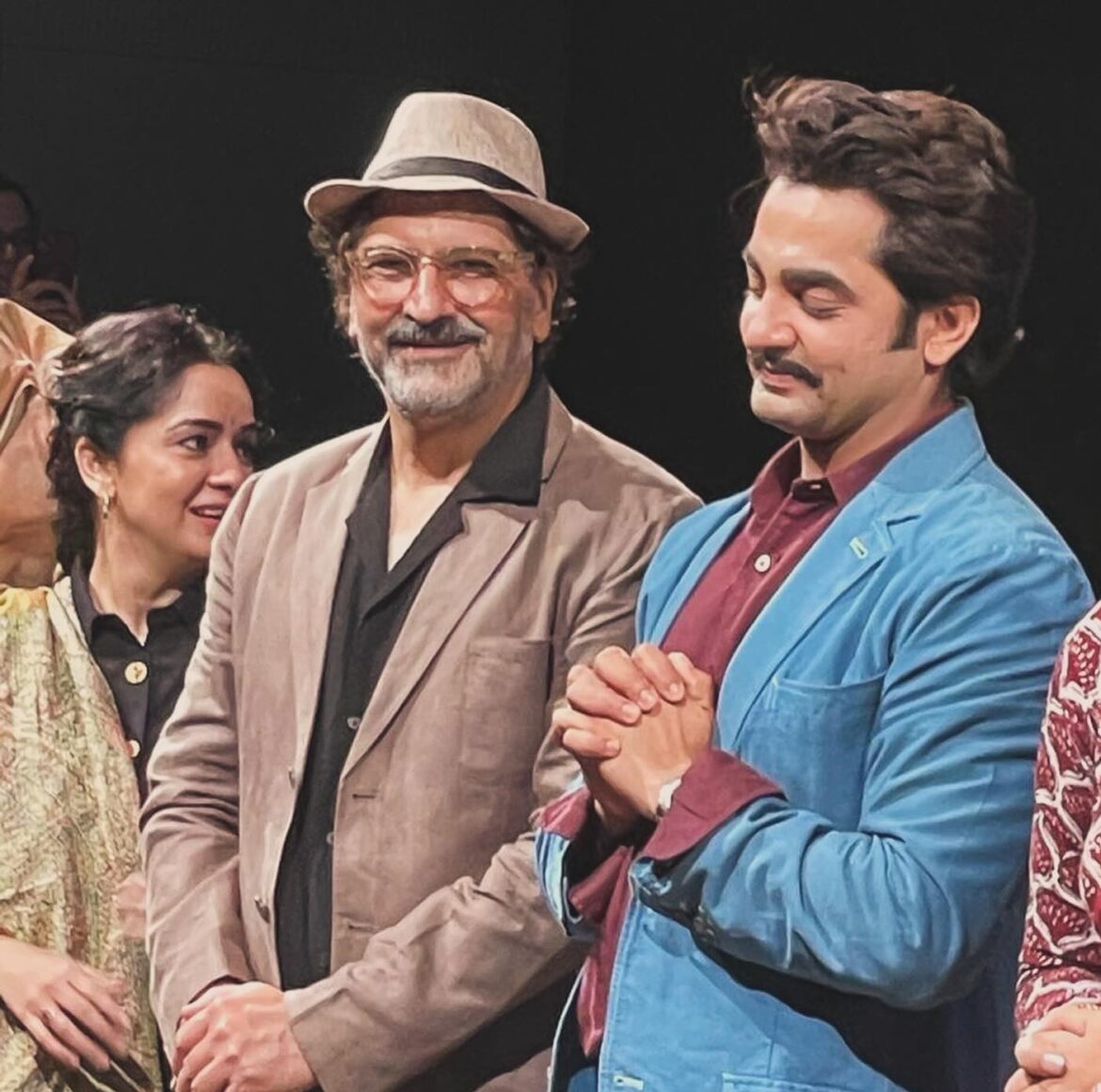Ajaatshatru
Directed by KK Raina- Ila Arun
Cast: Gaurav Amlani, Sonal Dabral, Sukhada Khandekar, Chandan Kumar, Vedika Sai and others
Ila Arun and KK Raina-led group Surnai has been organizing an Ibsen Festival for the last decade, in association with the Royal Norwegian Consulate General, and this year was the eighth season (two years lost to the pandemic). Over the years, the group has not just invited other Ibsen productions, but also produced one each year, and Ila Arun has adapted many of Ibsen’s plays into Hindi.
What she has succeeded in doing is Indianising plays like PEER GYNT, HEDDA GABLER, GHOSTS, THE LADY FROM THE SEA and placing them within a specific cultural context, so that their Norwegian origin is barely discernible. It is a tribute to the timelessness and universality of Henrik Ibsen’s work but also of Ila Arun’s imagination and understanding of Indian—particularly Rajasthani– folk traditions. Of all Ibsen’s plays, AJAATSHATRU, adapted from AN ENEMY OF THE PEOPLE, must have been the easiest to do, because of the propensity of Indians to blindly believe in religious rituals and superstition, as also the greed, corruption and apathy of the municipal corporations across the country. The state of the media today is clear to everyone. (Satyajit Ray had made a film, Ganashatru, in 1989, based on the same play).
The spa of Ibsen’s play is turned into a Brahma Kund, with a prologue explaining the mythological origins and significance of these ponds dedicated to Lord Brahma, thus adding a layer of faith to the plot– whoever has messed with that has had to pay a heavy price. Ajaatshatru (Gaurav Amlani) is a doctor, appointed as a medical officer for the Brahma Kund in the fictional Sonepur, through some string-pulling by his brother Abhimanyu (Sonal Dabral), the Mayor. (In India, mayors have limited powers, a municipal commissioner might have been a better title for him).
The Brahma Kund of the town is believed to have medicinal properties, and an annual fair brings pilgrims and revenue to Sonepur. Ajaatshatru discovers that the holy pond has been polluted by industries in the town, so drinking or bathing in that water would be dangerous. He gets the water tested and wants to get the results published in the only local paper, Prajapati Times, whose editor Nirmal Kothari (Sachin K. Jaryal) and reporter Veer (Guneet Singh) are his friends. Abhimanyu resents this and accuses his brother of being publicity hungry.
Ajaatshatru wants the Brahma Kund to be shut down and cleaned up just as the fair is about to begin, and the Mayor is obviously against it, fearing loss of income for the town’s business folk. The doctor’s wife Malti (Sukhada Khandekar) and daughter Aparajita (Vedika Sai), a teacher and environmentalist, support him, but Ajaatshatru is let down by everyone else. The cartoonish publisher of the paper, Puranmal Jain (Chandan Kumar), who promises to publish Ajaatshatru’s report, is also a businessman; if there is a choice between journalistic ethics and profit, he knows where his allegiance lies. Ajaatshatru—which means one who has no enemies—is labelled an enemy of the people by the very citizens of Sonepur whom he seeks to protect from the toxic water.
Ibsen is reported to have said, “”I am still uncertain as to whether I should call [An Enemy of the People] a comedy or a straight drama. It may [have] many traits of comedy, but it also is based on a serious idea.” KK Raina and Ila Arun have also tried to balance Ajaatshatru’s tragedy with satire, by making the publisher, the editor and businessman deliberately caricaturish, and having them overact outrageously. So the battle of morality is between the brothers, with the others as pawns in the game. Ila Arun’s ending is different and she has added a save-the-environment message, which is stating the obvious, but also, perhaps important, going by regular reports of groundwater depletion and contamination.
Gaurav Amlani and Sonal Dabral have the meatiest parts and both deliver what is requiried of them– earnestness as opposed to venality. Considering neither is a regular stage actor, their performances are commendable. (Amlani is also playing a man much older than his real age.(
The set is simple, projection is used to convey various backdrops; music is judiciously utilised and the play appeals to the audience because of its content–It is distressing that what Ibsen wrote about in 1882, is more relevant today than ever, when the environment does need saving, and people are so easily swayed by purveyors of faith.
Pic courtesy Sonal Dabral’s FB Page
(This piece first appeared in mumbaitheatreguide.com)

